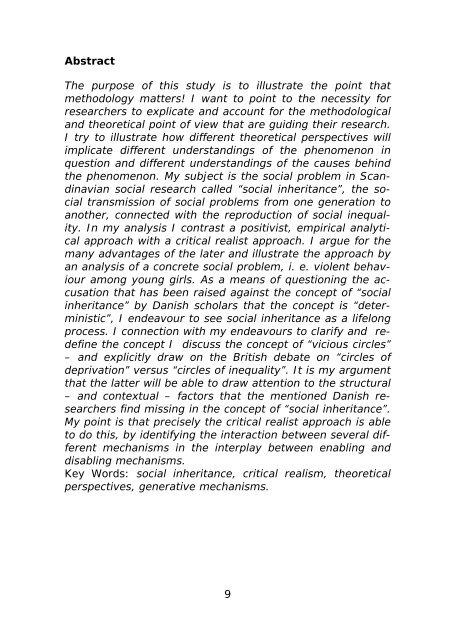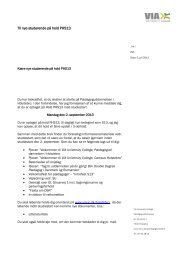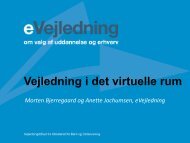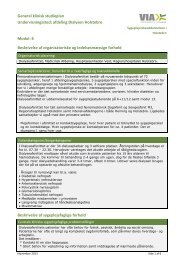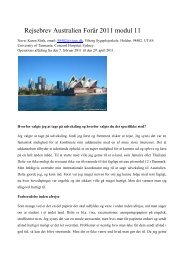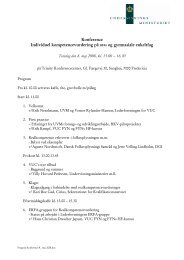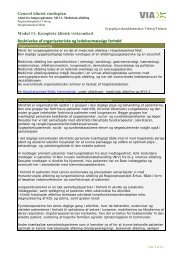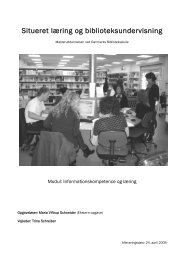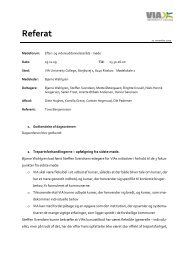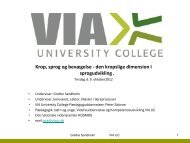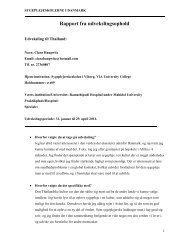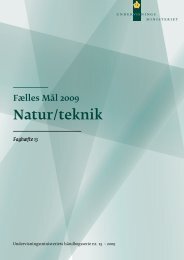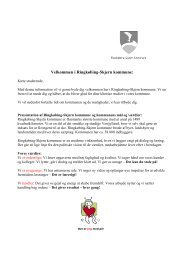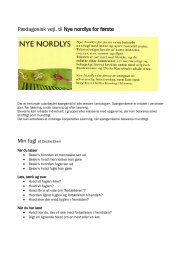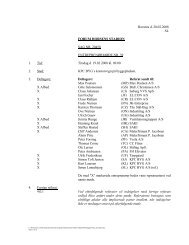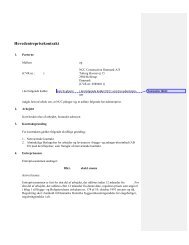Social arv - set i et kritisk realistisk perspektiv - VIA University College
Social arv - set i et kritisk realistisk perspektiv - VIA University College
Social arv - set i et kritisk realistisk perspektiv - VIA University College
You also want an ePaper? Increase the reach of your titles
YUMPU automatically turns print PDFs into web optimized ePapers that Google loves.
Abstract<br />
The purpose of this study is to illustrate the point that<br />
m<strong>et</strong>hodology matters! I want to point to the necessity for<br />
researchers to explicate and account for the m<strong>et</strong>hodological<br />
and theor<strong>et</strong>ical point of view that are guiding their research.<br />
I try to illustrate how different theor<strong>et</strong>ical perspectives will<br />
implicate different understandings of the phenomenon in<br />
question and different understandings of the causes behind<br />
the phenomenon. My subject is the social problem in Scandinavian<br />
social research called “social inheritance”, the social<br />
transmission of social problems from one generation to<br />
another, connected with the reproduction of social inequality.<br />
In my analysis I contrast a positivist, empirical analytical<br />
approach with a critical realist approach. I argue for the<br />
many advantages of the later and illustrate the approach by<br />
an analysis of a concr<strong>et</strong>e social problem, i. e. violent behaviour<br />
among young girls. As a means of questioning the accusation<br />
that has been raised against the concept of “social<br />
inheritance” by Danish scholars that the concept is “d<strong>et</strong>erministic”,<br />
I endeavour to see social inheritance as a lifelong<br />
process. I connection with my endeavours to clarify and redefine<br />
the concept I discuss the concept of “vicious circles”<br />
– and explicitly draw on the British debate on “circles of<br />
deprivation” versus “circles of inequality”. It is my argument<br />
that the latter will be able to draw attention to the structural<br />
– and contextual – factors that the mentioned Danish researchers<br />
find missing in the concept of “social inheritance”.<br />
My point is that precisely the critical realist approach is able<br />
to do this, by identifying the interaction b<strong>et</strong>ween several different<br />
mechanisms in the interplay b<strong>et</strong>ween enabling and<br />
disabling mechanisms.<br />
Key Words: social inheritance, critical realism, theor<strong>et</strong>ical<br />
perspectives, generative mechanisms.<br />
9


